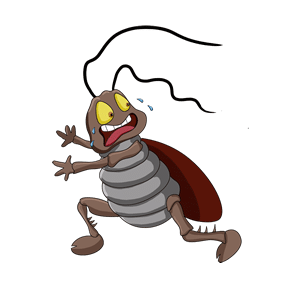The kitchen is one of the most important rooms in your house. It is the heart of your home where you prepare meals and socialise with friends and family. But, did you know that your kitchen could also be infested by pantry pests?
What are pantry pests?
Pantry pests are common household insects that can cause major damage to your food supply, leading to a costly repair job or worse, a complete replacement of all dry goods. In this guide, we will discuss how to get rid of pantry pests and keep them from coming back again.
Pantry pests can contaminate food by spreading bacteria such as Salmonella and E. coli. They can also damage packaging by eating through plastic bags or boxes of cereal.
Some pantry pests are attracted to the smell of fresh foods such as rice, beans or flour. Others feed on dry goods that are not in airtight containers such as pasta or cereal. Pantry pests feed on almost any type of food including pet food left in an open container at room temperature.
What Causes Pantry Pests?
Cleaning up your pantry can help you avoid infestations of pantry pests. Here are some common causes of infestations:
Sugar and flour are two ingredients that are often used in baking and cooking. These ingredients can attract ants if left out in the open or if they spill onto surfaces where ants can find them. Flour and sugar can also attract other types of insects such as cockroaches, earwigs, silverfish and beetles.
If food items are stored in containers that have holes in them, it allows insects to get inside the container and eat its contents. For example, loose-fitting lids on jars or containers allow cockroaches to crawl inside and eat whatever food is inside the container.
If you store food items near sources of moisture or humidity such as windows or doorways, then these areas will provide a breeding ground for mold spores that could cause an infestation of pantry pests.
Pantry Pest Life Cycle
Pantry pests have a life cycle that is similar to other insects. The adult bugs lay eggs that hatch into larvae. They then transition into the pupal stage and finally emerge as adults. The length of this cycle varies depending on the species of pantry pest and environmental factors.
Adult female pantry pests lay eggs in or near food sources. They can lay several hundred eggs over their lifetimes, depending on the species and environmental conditions. The eggs hatch into larvae, which feed on food sources such as flour and grain. The larvae moult several times before becoming pupae.
As larvae enter the pupal stage, they transition from being active to becoming dormant during this time period. After several days or weeks, the pupae emerge as adults ready to mate and start another generation of bugs in your pantry.
Steps To Eliminate Pantry Pests
Pantry pests can be a real nuisance, and they can also be a health hazard. If you’re dealing with pantry pests, there are a few things you can do to get rid of them.
- Identify the pest. The first step is to identify the type of pantry pest you’re dealing with. This will help you choose the right treatment method. Some common pantry pests include:
- Weevils: Weevils are small, brown beetles that can damage grains, cereals, and nuts.
- Moths: Moths are small, winged insects that can damage flour, pasta, and other dry foods.
- Ants: Ants are attracted to sweet foods, and they can quickly infest your pantry.
- Rodents: Rodents like mice and rats can also eat your food, and they can also carry diseases.
- Clean and declutter your pantry. This will help to remove any food sources that the pests are attracted to. Get rid of any old or damaged food, and make sure that all of your food is stored in airtight containers.
- Set traps. There are a variety of traps available to catch pantry pests. You can buy traps at most hardware stores, or you can make your own.
- Use pesticides. If the infestation is severe, you may need to use pesticides. Be sure to follow the directions on the label carefully, and wear protective gear when applying the pesticide.
- Call a pest control professional. If you’re unable to get rid of the pests yourself, you may need to call a professional pest control company.
Here are some additional tips to help prevent pantry pests:
- Store food in airtight containers.
- Keep your pantry clean and free of clutter.
- Inspect your food regularly for signs of pests.
- Don’t leave food out on countertops or tables.
- Seal up any cracks or holes in your walls or foundation.
- Keep your pets’ food in a separate area.
If you are looking for Pest Control in Fife and surrounding areas, get in touch with Eliminate Solutions today!



